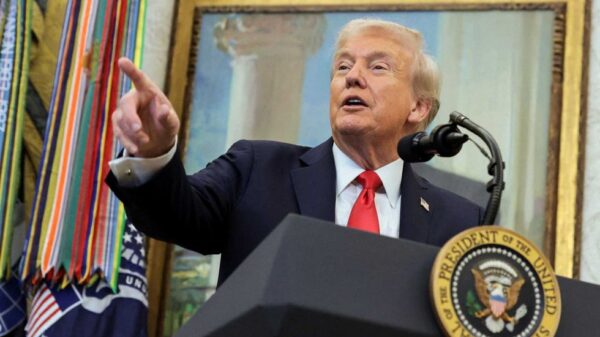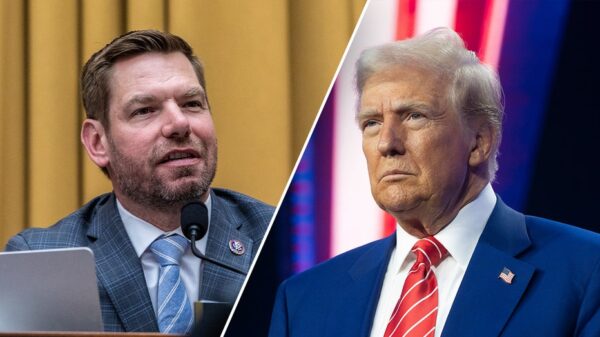A new bipartisan initiative, the Restore Trust in Congress Act, has been introduced in the U.S. House of Representatives, aiming to impose strict limits on stock trading by members of Congress and their families. The legislation seeks to prohibit lawmakers from owning or trading individual stocks, securities, commodities, and futures. This move reflects growing concerns over potential conflicts of interest, as members of Congress often have access to sensitive information that could influence their financial decisions.
Co-sponsor Rep. Seth Magaziner, a Democrat from Rhode Island, emphasized the importance of prioritizing public welfare over personal financial gains. “When members of Congress are voting on bills, we should be voting based on what we think is the best for the American people, not on what is best for an investment account,” he stated.
The bill has garnered support from a diverse coalition, including progressive figures like Rep. Alexandria Ocasio-Cortez of New York and conservative members such as Rep. Chip Roy from Texas. Roy remarked, “It’s far past time to ban Members of Congress from day trading stocks, and for the first time, a bipartisan coalition is standing together behind a united proposal to do just that.”
Key Provisions of the Legislation
Under the proposed legislation, members of Congress, along with their spouses, dependent children, and trustees, would have a period of 180 days to divest from any individual stocks or bonds they currently own. Newly elected members would have 90 days to comply upon taking office. The bill outlines a clear prohibition against trading based on insider information, allowing lawmakers to invest only in large mutual funds.
Peter Schweizer, president of the Government Accountability Institute and author of the book “Throw Them All Out,” expressed his support for the bill, highlighting the necessity for clear regulations. “What I’m excited about with this new piece of legislation is it creates a very clear line: you cannot trade inside information, you cannot trade individual stocks,” he noted.
This initiative follows the passage of the Stop Trading on Congressional Knowledge Act (STOCK Act) in 2012, which aimed to curb insider trading by legislators. Schweizer pointed out that the original intent of the STOCK Act was undermined shortly after its passage, describing how bipartisan support led to significant rollbacks of its provisions.
Public Support and Legislative Momentum
While the current status of the Restore Trust in Congress Act remains uncertain, recent statements from House Speaker Mike Johnson indicate a willingness to consider a ban on insider trading among Congress members. Former President Donald Trump has also publicly expressed support for the concept.
Polling data reflects a strong public consensus on this issue. A 2023 survey conducted by the University of Maryland’s School of Public Policy revealed that 86% of Americans support banning stock trading for members of Congress and their families. This includes 86% of Republicans, 87% of Democrats, and 81% of independents.
Ocasio-Cortez highlighted the significance of this public backing, suggesting it creates momentum for the bill. “The information we have access to as members of Congress should only be used to serve our constituents, not ourselves,” she stated.
The introduction of the Restore Trust in Congress Act marks a pivotal moment in the ongoing discussion about ethical standards and accountability in Congress. As lawmakers consider the implications of this legislation, the public will be watching closely to see whether it leads to a meaningful change in the way members of Congress manage their financial interests.





































































